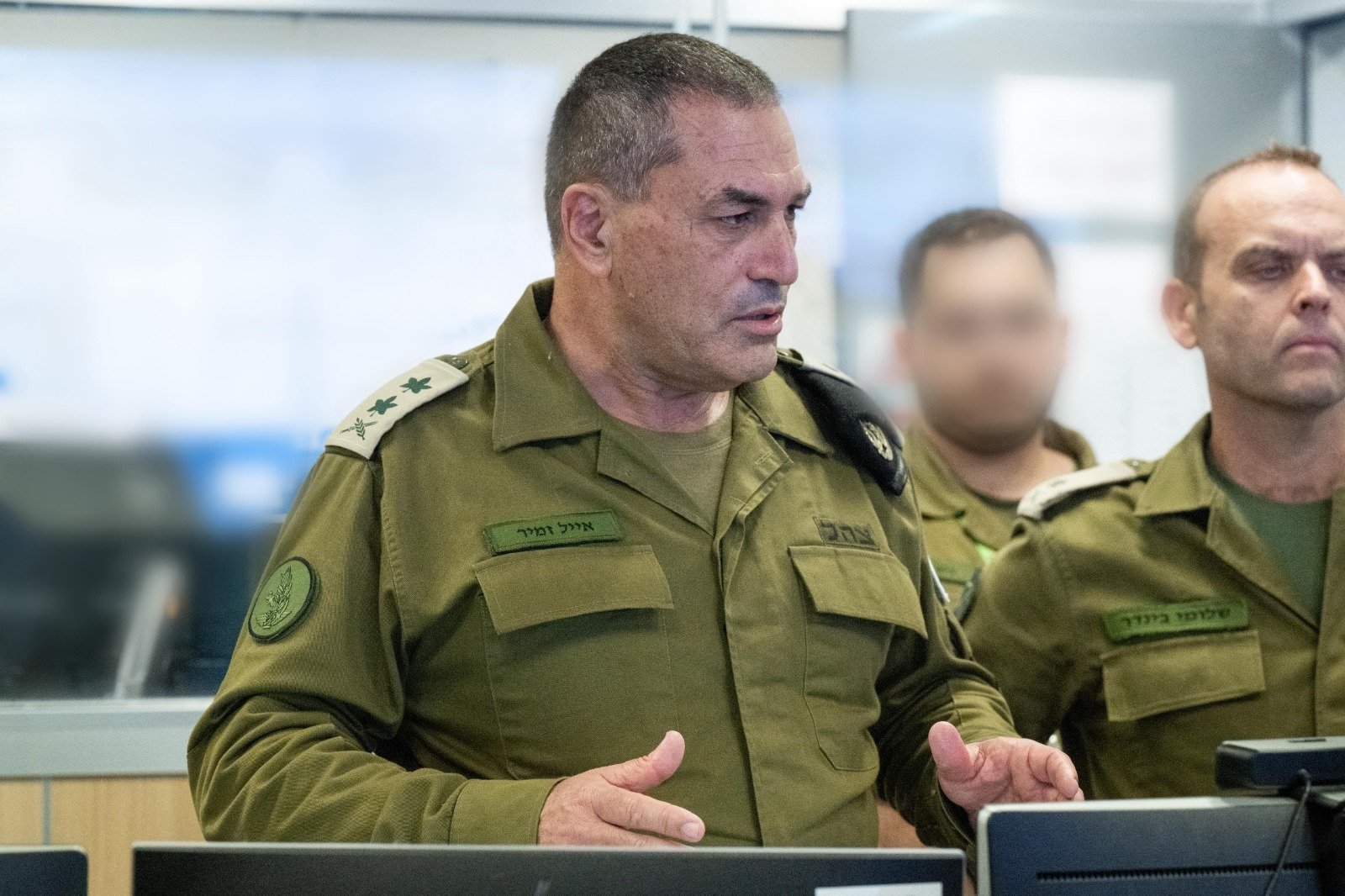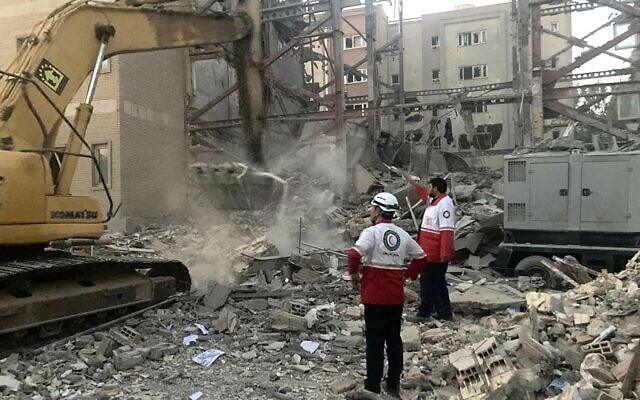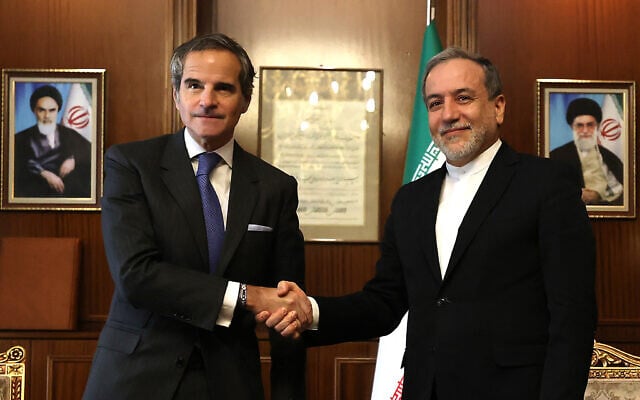



IDF Chief of Staff Eyal Zamir has told colleagues that Iran is no longer a nuclear threshold state following the Israeli and US strikes on its nuclear program, a source familiar with the matter told The Times of Israel on Friday.
While Iran may still maintain parts of its nuclear program, it has been set back by years, Zamir has concluded, the source said, given the damage suffered by Iran to the entire bomb-making process, including the elimination of key scientists, and the attacks on key nuclear facilities and other elements of manufacture and weaponization.
The comments came as Iran rejected a request by the United Nations nuclear watchdog to inspect nuclear facilities and material affected by the Israeli and American bombing campaigns.
Meanwhile, Defense Minister Israel Katz said he had instructed the IDF to thwart any further nuclear advances in Iran, adding that “immunity is over” for Israel’s enemies following the Hamas onslaught of October 7, 2023, which sparked the war in Gaza.
“I’ve instructed the IDF to prepare an enforcement plan against Iran that includes maintaining Israel’s air superiority, preventing nuclear advancement and missile production, and responding to Iran for supporting terror activity against Israel,” wrote Katz on X.
“We will act regularly to thwart such threats,” he said, summarizing the IDF’s actions during its 12-day campaign against Iran.
“I suggest the defanged head of the snake in Tehran, understand and beware: Operation Rising Lion was only the preview of a new Israeli policy, after October 7, immunity is over,” wrote Katz.
Foreign Minister Gideon Sa’ar said that in attacking Iran, “Israel acted at the last possible moment against an imminent threat against it, the region and the international community.”
“The international community now has an obligation to prevent, through any effective means, the world’s most extreme regime from obtaining the most dangerous weapon,” said Sa’ar on X.
He added that Iran’s rejection of the UN request to inspect bombed nuclear facilities showed that Tehran “continues to mislead the international community and actively works to prevent effective oversight of its nuclear program.”
Israel and Iran have each claimed victory in the war that ended with a US-brokered ceasefire on June 24.
Israel launched the opening strike against Iran on June 13. According to Israel, the sweeping assault on Iran’s top military leaders, nuclear scientists, uranium enrichment sites, and ballistic missile program was necessary to prevent the Islamic Republic from realizing its avowed plan to destroy the Jewish state.
Iran retaliated with drone launches and deadly ballistic missile strikes against Israel, causing major damage as it targeted civilian centers, but far less than Israel initially feared, with the IDF managing to limit the number of missiles fired at Israel and intercepting the vast majority.
Though Iran denies seeking nuclear weapons, it has enriched uranium to levels that have no peaceful application, obstructed international inspectors from checking its nuclear facilities, and expanded its ballistic missile capabilities. The Islamic Republic recently took steps toward weaponization, according to Israel.
On Sunday, following waves of Israeli attacks on nuclear and military sites, the US bombed three key nuclear facilities, with US President Donald Trump insisting the attack set Iran’s nuclear program back by “decades.”
Prime Minister Benjamin Netanyahu, in an address to the nation after the ceasefire, announced that “we have thwarted Iran’s nuclear project.”
But there is no consensus as to how effective the strikes were. Concerns have also been raised in Israel and Western countries over whether Iran was able to relocate its stockpile of near-weapons-grade uranium before the Israeli and US strikes.
Rafael Grossi, head of the UN’s International Atomic Energy Agency, had called on Monday for inspectors from the agency to be granted access to Iran’s nuclear facilities so that they could establish what had happened to the uranium. Iran’s Foreign Minister Abbas Araghchi turned down the request Friday, saying it suggested “malign intent.”
“Grossi’s insistence on visiting the bombed sites under the pretext of safeguards is meaningless and possibly even malign in intent,” said Araghchi on X. “Iran reserves the right to take any steps in defense of its interests, its people and its sovereignty.”
Araghchi again hit out at Grossi personally for not speaking out against the Israeli and US strikes on Iran’s nuclear facilities, describing it as an “astounding betrayal of his duties.”
He charged that the IAEA chief had “directly facilitated… the unlawful Israeli and US bombings” by “obfuscating” Iran’s efforts to allay the watchdog’s concerns in a May 31 report that accused it of “less than satisfactory” cooperation.
That report led to the adoption of a censure motion by the IAEA board of governors that Iran says cleared the way for Israel’s bombing campaign.
Araghchi’s comments came after the Iranian parliament approved a bill suspending cooperation with the UN watchdog. The minister said the new relationship with the IAEA would continue “until the safety and security of our nuclear activities can be guaranteed.”



